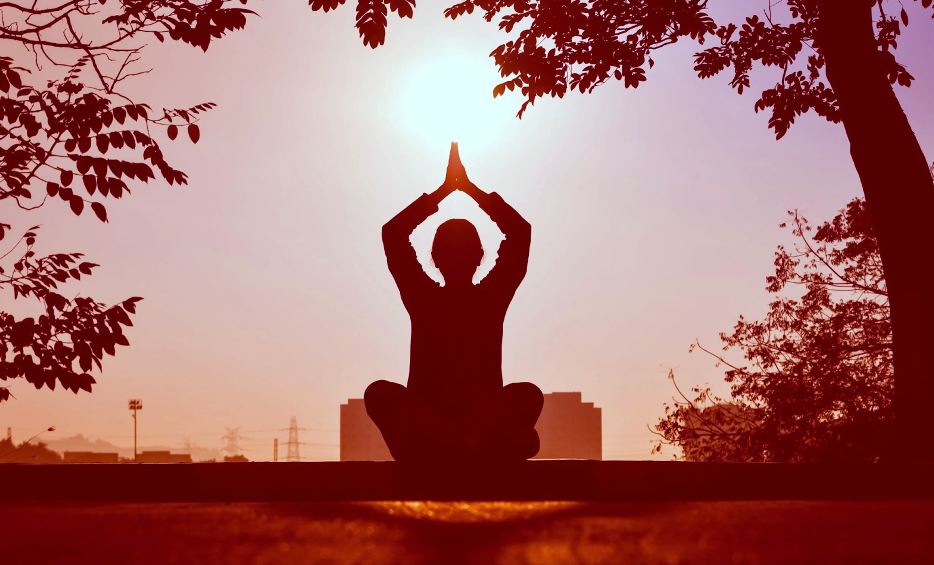Mental health is just as important as physical health, and yet it’s often neglected. According to the World Health Organization, depression is the leading cause of disability worldwide. If you’re feeling down, stressed, or anxious, meditation may be a good way to improve your mental well-being. In this blog post, we will discuss some tips for meditating effectively and achieving better mental health!
1. Make time for meditation
If you want to improve your mental well-being, it’s important to make time for meditation. Just like physical exercise, meditation requires regular practice to see results. Try to meditate for at least 15-20 minutes each day. If you’re new to meditation, start with shorter sessions and gradually increase the length of time as you become more comfortable with the practice. You can also visit Zen and Stone for more tips on how to improve your mental well-being. Find a quiet place where you can sit or lie down comfortably without being interrupted. You may want to set a timer so that you don’t have to worry about keeping track of time. Once you’re settled, close your eyes and focus on your breath. Breathe in slowly and deeply through your nose, filling your lungs up. Then exhale slowly through your mouth.
2. Don’t get discouraged
It’s normal to feel like you’re not doing it right, or that meditation is difficult. Don’t worry about getting it “perfect.” Just keep practicing and you will improve with time. Remember that there are no mistakes in meditation, only opportunities to start again. If your mind wanders, simply bring your focus back to your breath. It’s also helpful to have realistic expectations for meditation. It won’t magically make all of your problems go away, but it can help you deal with them more constructively. Some people think that they need to clear their minds of all thoughts to meditate, but this isn’t the case. Meditation is about focus and awareness, not emptying your mind.
3. Be patient
Like anything else, it takes time and patience to learn how to meditate effectively. Don’t get discouraged if you don’t see results immediately. Just keep practicing, and you will eventually start to see the benefits. Meditation is a journey, not a destination. Enjoy the process and let go of any expectations or goals that you have for meditation. Trust that it will help you in your unique way. Some people need to meditate for years before they see any significant changes, so don’t give up! Some people even find that their meditation practice evolves. As you become more experienced, you may find that your goals and motivations for meditation change as well.
4. Attend therapy before meditation
If you have any mental health conditions, it’s important to seek professional help before starting a meditation practice. Meditation can be beneficial for people with anxiety, depression, and other mental health conditions, but it’s not a substitute for therapy or medication. If you’re struggling with your mental health, please see a therapist or doctor before beginning meditation. Once you’ve started seeing a therapist and/or taking medication (if necessary), you can then start exploring meditation as a way to supplement your treatment. Meditation is a powerful tool that can improve your mental well-being, but it’s not a cure-all. Be sure to consult with a professional if you’re struggling with your mental health.
5. Join a meditation group
If you’re having trouble getting started with meditation, try joining a meditation group. There are often free community groups that meet regularly to meditate together. This can be a great way to learn from others and get support from people who are also trying to improve their mental well-being. You can also look for online meditation groups or classes. If you live in a rural area, there may not be any local groups available, but there are still plenty of online options. Sometimes it can be helpful to have someone else guide you through meditation, at least in the beginning. Once you get more comfortable with the practice, you can then start meditating on your own.
6. Experiment with different types of meditation
There are many different types of meditation, so it’s important to find one that works for you. If you don’t like one type of meditation, try another! There is no “right” way to meditate, so feel free to experiment until you find a method that works for you. Some popular types of meditation include mindfulness meditation, guided meditation, and Transcendental Meditation (TM). You can also try out different breathing exercises or visualization techniques. Once you find a type of meditation that you enjoy, stick with it and practice regularly. There are also different frequencies and duration of meditation, so find what works best for you. You can meditate for as little as five minutes or for hours at a time. It’s up to you!
7. Set aside time for meditation
It’s important to set aside some time each day for meditation. Just like with anything else, you won’t see results if you don’t put in the effort. Choose a time that works for you and stick to it as best as you can. It may be helpful to meditate at the same time each day so that it becomes a regular part of your routine. If you have trouble finding time in your schedule, try getting up earlier or meditating before bedtime. You can also try meditating during your lunch break or while taking a walk outdoors. If you have trouble sitting still, there are even walking meditation practices that you can try. The most important thing is to find a time that works for you and to be consistent with your practice.
These are just a few tips to help you get started with meditation. Remember, there is no “right” way to meditate, so don’t be discouraged if it doesn’t seem to work for you at first. Stick with it and be patient. Meditation is a powerful tool that can improve your mental well-being, but it takes time and practice to see results. With these tips, you can start on the path to improving your mental well-being today!


